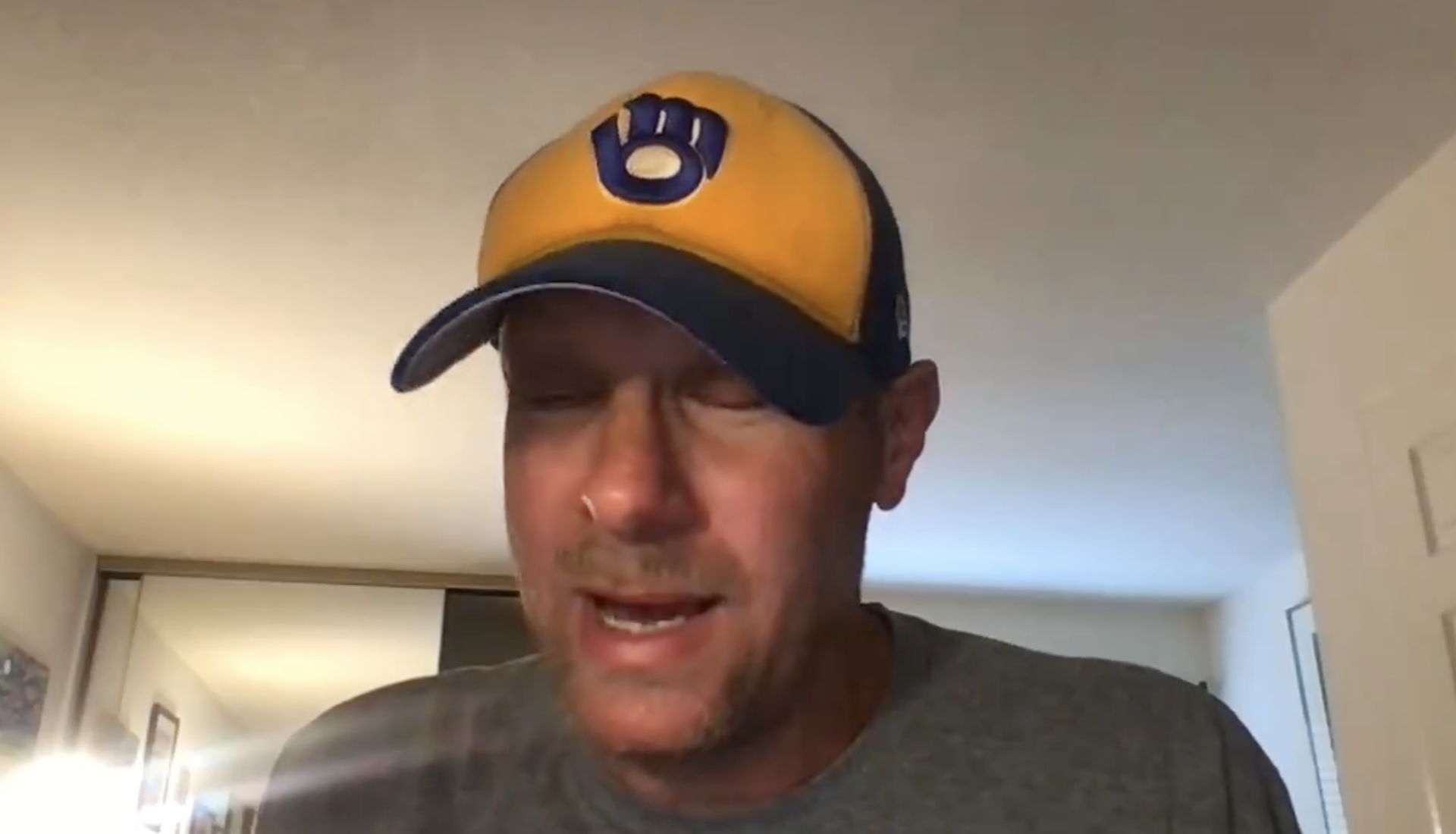Whenever another round of layoffs takes a fresh bite out of the already consumed and regurgitated media industry, some dingus decides that it is his solemn duty to speak up and offer some valuable advice to those in need of it during these troubled times. This time, that dingus was former Sports Illustrated staffer Jeff Pearlman.
On Tuesday, Pearlman recorded and posted a video message in which he gave some career advice to young sports journalists who are understandably starting to feel pretty down about their job prospects, given how many jobs are constantly and continually being cut all across the industry.
In this moment of journalism layoffs and firings and foldings and nightmares, some advice for young journalists from an old, ink-stained hack who's seen a few things. pic.twitter.com/tyF9nNHPGv
— Jeff Pearlman (@jeffpearlman) January 23, 2024
"The No. 1 thing is, you have to make yourself indispensable," Pearlman said. "You just do." He then conjured a hypothetical writer who is covering Wichita State basketball for "some newspaper." He instructs this imaginary person to ask their bosses if they can also do a podcast, and then to build up a huge Instagram, Twitter, and TikTok following. "You have to grind, and grind, and grind. Start a Substack that directs people ultimately to your work on your newspaper website," he said.
Pearlman then pivoted to some advice on how to become a published author: "My advice to you, if it's a first-time book, is don't make it about your uncle who is a diabetic and his battle. Find something that is mainstream-ish. The Big East in the 1980s, LeBron and Kobe's relationship. Something big."
Pearlman got yelled at by other sports journalists and Twitter users for a few hours after giving out his advice, which caused him to post a follow-up video in which he dispensed even more advice.
A little follow-up on journalism, making it, the potholes, the techniques, the journey. It ain't easy. It's not. But there are some approaches that up your odds. #journalism #media #journalism https://t.co/P8wG1oYPsP pic.twitter.com/cJMG1RjNOx
— Jeff Pearlman (@jeffpearlman) January 24, 2024
"A lot of young journalists approach me and my peers and they'll say, 'How do I get hired at ESPN? How do I get hired at The Athletic?'" he said. "A lot of times what you honest to God have to do, and I'm not saying it's glorious or sexy or cool, is apply to a million smaller newspapers, and you start your first job covering high schoolers in Des Moines, or Nashua or something, and you work your way up."
If it feels like Pearlman is trying to get himself yelled at by as many people as possible, that's probably down to the fact that he long ago became someone who just kind of communicates in this register. It's not that he's trying to be grandiose or annoying; he probably is trying to give the best advice he can. He's just obtuse enough and windbaggy enough—"an ink-stained hack who's seen a few things"—that those efforts wind up driving people crazy. In this case, there actually is some value to be mined from Pearlman's musing, if not by young journalists. What he's offering here is a lesson to all current or former sports journalists who feel the urge to offer advice to the younger generation. That lesson is: It's OK not to have any insight or advice to offer.
Pearlman left Sports Illustrated in 2002, and has focused on writing books (and turning them into TV shows) ever since. What comes through in his advice, even as he trumpets the importance of utilizing newfangled platforms like TikTok and Instagram and Substack, is how thoroughly dated his understanding of the industry is. When he's going on about how important it is to cultivate a following on social media and do things like start a podcast, all he's really saying is "Work hard and become popular," which is about as unoriginal as career advice gets. It's when he takes a swing at offering more material advice that he reveals how out of his depth he is. Apply for jobs at "a million smaller newspapers"? Those don't exist anymore. Graduate from journalism school, sit down, spend a few years writing a book about LeBron James, and then hope it somehow catches the eye of a book editor—preferably one looking to publish a book by an unknown writer about one of the most-covered humans alive—and becomes one of the small fraction of books that sells more than a few thousand copies? What are you talking about, sir!
A person of Pearlman's age and pedigree, who came up in a version of the industry that looks nothing like it does now, might be able to tell a young journalist about the craft of journalism, but will necessarily have no novel advice to offer anyone trying to break into that industry today. Jeff Pearlman trying to tell a 22-year-old college graduate how to become a successful sportswriter is as useful as me trying to tell some teen how to get good at video games by showing them all the best places to hide on the Goldeneye maps. It's fine to just say, "I don't know. Things are really different now. I don't really have any good advice," and move on. Maybe you could also wish them good luck.






